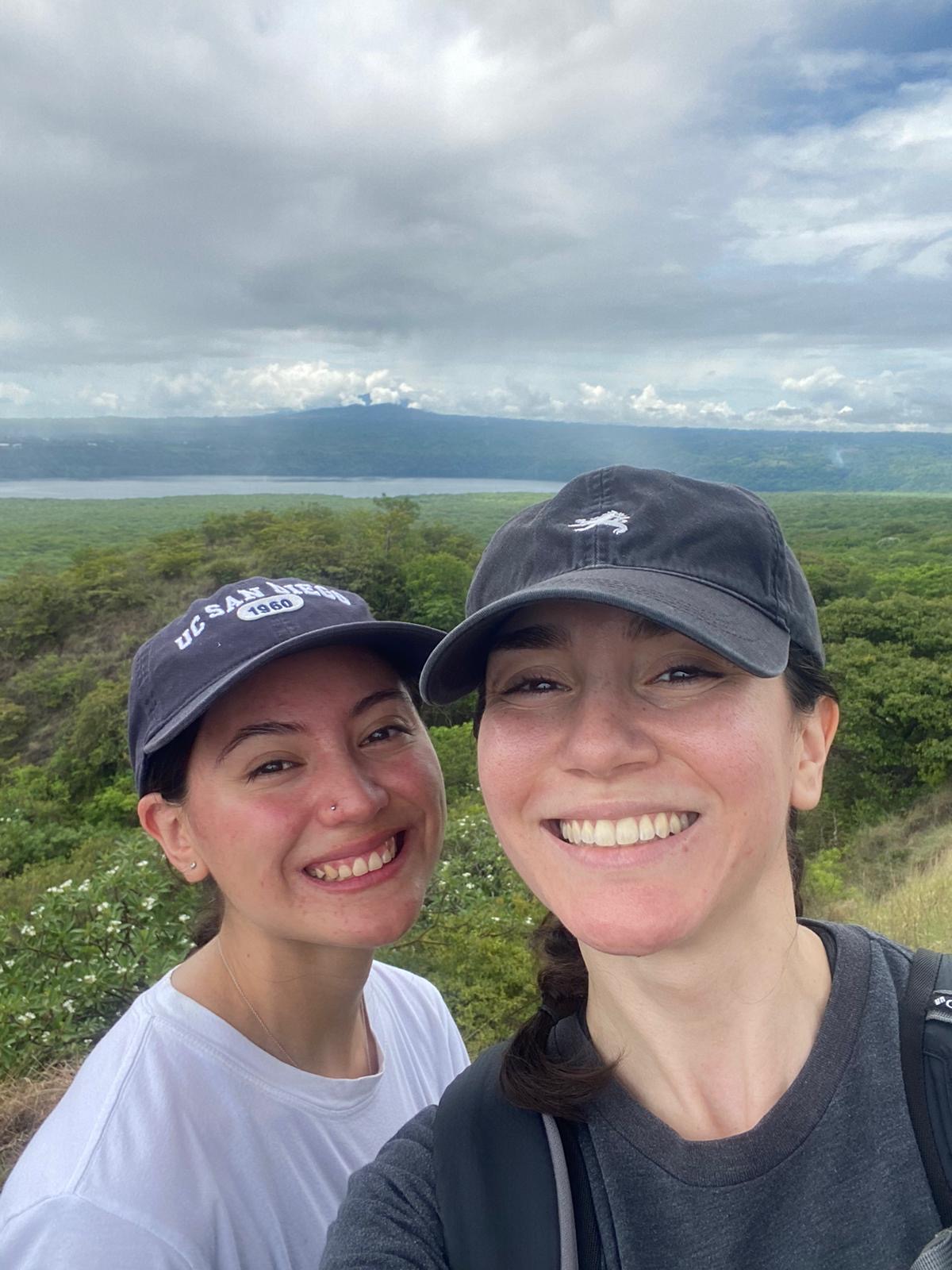Projects in Nicaragua
Investigators:
International Mentors:
Angel Balmaseda, MD
Guillermina Kuan, MD
Nicaraguan Ministry of Health
Placements are coordinated through the Sustainable Sciences Institute
University of Michigan Mentor:
Aubree Gordon, PhD, MPH, Associate Professor of Epidemiology, University of Michigan School of Public Health
Candidates at the undergraduate, master's and PhD levels may apply for either of the projects listed below for the 2025 program:
Project 1. The household Influenza and SARS-CoV-2 Cohort Study
Examination of transmission and susceptibility to influenza and SARS-CoV-2 infection in a household setting.
Anticipated undergraduate/graduate student activities on project:
- To create applications for the collection of data.
- To perform laboratory assays including RT-PCR and serological assays.
- To perform data management tasks including learning how to code in SAS.
- To perform the statistical analysis of the data including investigating the association between nutrition and influenza and SARS-CoV-2 infection.
- To assist in study coordination or field work
Techniques/methods students should become familiar with in advance:
- Students taking on statistical analysis projects should have some familiarity with SAS, STATA or R and have completed at least one class in statistics.
- Students completing projects around data management will be taught relevant skills
- In the lab, the student will learn how to handle the analysis of the different tests.
Background:
Pneumonia is the leading infectious cause of death in children under 5, with most of the deaths occurring is in low- and middle-income countries. It is estimated that 30-60% of influenza transmission occurs in households. For young children who do not attend daycare, such as those in many low and middle-income countries, the household is likely the main setting where they acquire influenza and SARS-CoV-2. Factors associated with poverty, including household crowding and poor nutrition can increase both transmission and affect the severity of influenza disease and SARS-CoV-2.
Suggested Literature:
- Gordon, A., Tsang, T., Cowling., B., Kuan, G., Ojeda, S., Sanchez, N., Gresh, L., Lopez, R., Balmaseda, A., and Harris, E. Influenza Transmission Dynamics in Nicaraguan Households. Emerg Infect Dis. 2018 Oct;24(10):1882-1888.
- Ng, S., Nachbagauer, R., Balmaseda, A., Stadlbauer, D., Ojeda, S., Patel, M., Rajabhathor, A., Lopez, R., Guglia, A.F., Sanchez, N., Amanat, F., Gresh, L., Kuan, G., Krammer, F., and Gordon, A. Novel correlates of protection against influenza A(H1N1)pdm infection Nature Medicine 2019 Jun;25(6):962-967.
- Petrie, J. and Gordon, A. Epidemiological Studies to Support the Development of the Next Generation of Influenza Vaccines. Vaccines 2018 6(2), 17; doi:10.3390/vaccines6020017
- Maier, H., Lopez, R., Ng, S., Gresh, L., Ojeda, S., Burger-Calderon, R., Harris, E.,
Balmaseda, A., and Gordon, A. Obesity increases influenza A shedding in adults. J
Infect Dis 2018 Sep 22;218(9):1378-1382.
Project 2. The Nicaraguan Pediatric Influenza and SARS-CoV-2 Cohort Study
Examination of the incidence and severity of influenza and SARS-CoV-2 in children as well as the development of immunity to influenza and SARS-CoV-2. Secondarily, we will also investigate RSV.
Anticipated undergraduate/graduate student activities on project:
- To create applications for the collection of data.
- To perform laboratory assays including RT-PCR and serological assays.
- To perform data management tasks including learning how to code in SAS.
- To perform the statistical analysis of the data.
- To assist in study coordination and fieldwork
Techniques/methods students should become familiar with in advance:
- Students taking on statistical analysis projects should have some familiarity with SAS, STATA or R and have completed at least one class in statistics.
- Students completing projects around data management will be taught relevant skills
- In the lab, the student will learn how to handle the analysis of the different tests.
Background:
Pneumonia is the leading infectious cause of death in children under 5, with most of the deaths occurring is in low- and middle-income countries. Both RSV, Influenza, and SARS-CoV-2 are significant viral causes of pneumonia. Our current vaccine for influenza and SARS-CoV-2 is sub-optimal as it has limited effectiveness, is strain specific and lasts for only a year, making it a vaccine that is difficult to deploy in low-income settings. RSV does not currently have a vaccine.
Suggested Literature:
- Gresh L, Kuan G, Sanchez N, Azziz-Baumgartner E, Ojeda S, Melendez M, Lopez R, Martin ET, Widdowson MA, Bresee J, Harris E, Balmaseda A, and Gordon A. Burden of Influenza and Influenza-Associated Pneumonia in the First Year of Life in a Prospective Cohort Study in Managua, Nicaragua. Pediatr Infect Dis J. 2016 Feb; 35(2) 152-6.
- Gordon A, Kuan G, Aviles W, Sanchez N, Ojeda S, Lopez B, Gresh L, Balmaseda A, Harris E. The Nicaraguan pediatric influenza cohort study: design, methods, use of technology, and compliance. BMC Infect Dis. 2015 Nov 9;15(1):504. doi: 10.1186/s12879
- Petrie, J. and Gordon, A. Epidemiological Studies to Support the Development of the Next Generation of Influenza Vaccines. Vaccines 2018 6(2), 17; doi:10.3390/vaccines6020017
- Kubale, J., Kuan, G., Gresh, L., Ojeda, S., Azziz-Baumgartner, E., Sanchez, N., Lopez, R., Harris, E., Balmaseda, A., and Gordon, A. Assessing the Burden of Respiratory Syncytial Virus (RSV) within a Community-based Prospective Birth Cohort Clin Infect Dis. 2019 Jun 29. pii: ciz585. doi: 10.1093/cid/ciz585. [Epub ahead of print]
About the Host Site & Location:
Nicaragua is a Spanish speaking country in Central America. The host site is in Managua the capital and largest city. Between mid-May and mid-November is the rainy season.
The host site is a local NGO, the Sustainable Sciences Institute who works closely with the Ministry of Health, Nicaragua. Students may be placed at the main NGO site, the National Laboratory, or a local health center depending on skill set, interests and study needs. The host site helps to arrange accommodations and transport.

